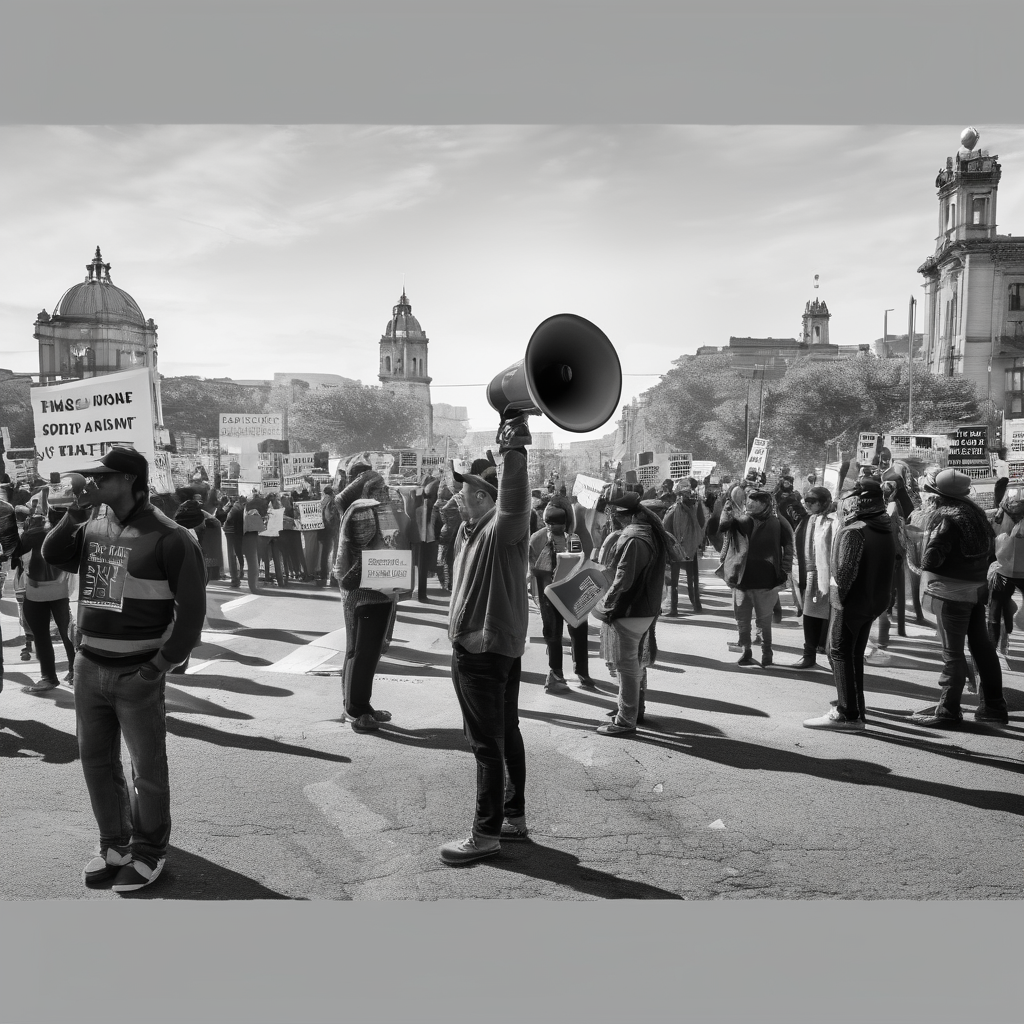Thousands of individuals took to the streets across Mexico this past Saturday, rallying under the banner of “Generation Z” to protest escalating violence in the wake of the assassination of an anti-crime mayor earlier this month. The outpouring of public anger was sparked by the tragic murder of Uruapan Mayor Carlos Manzo, who was killed during a public event on November 1.
In Mexico City, the demonstration escalated when a small group of masked protesters clashed with riot police outside the National Palace, where President Claudia Sheinbaum resides. Officials reported that 100 police officers were injured—40 requiring hospitalization—alongside 20 civilians. In total, authorities made 20 arrests and referred another 20 individuals for administrative offenses during the unrest.
The protests also echoed broader frustrations with the government, with demonstrators in the capital chanting slogans like “Out, Morena,” targeting Sheinbaum’s political party. Calls for stronger government intervention against crime were prominent, with protesters exclaiming, “Carlos did not die; the government killed him,” reflecting the growing distrust among citizens toward their leadership amidst the violence seen throughout the country.
“Generation Z Mexico,” the group that organized the demonstrations, asserts through its manifesto that it is politically neutral and represents young Mexicans fed up with violence, corruption, and abuses of power. Their actions mirror protests in other countries, where movements have also adopted the label to push for social and political change.
Sheinbaum’s administration, however, has cast doubt on the motivations behind the protests, suggesting that they were largely driven by right-leaning political opponents and amplified by social media bots. The ongoing unrest highlights the dire issues surrounding public safety in Mexico, amidst alarming rates of violence that have permeated society, including the especially concerning prevalence of femicides.
The tragic killing of public figures like Mayor Manzo and the prior murder of beauty influencer Valeria Marquez have underscored a national crisis regarding violence against both political figures and women. This surge in violent incidents serves as a wake-up call for citizens and government alike, urging a thorough reevaluation of safety measures and policies.
Despite the dark clouds of violence and political strife that loom over Mexico, the continued mobilization of young voices, exemplified by the Generation Z protests, imbues a sense of hope for positive change. As these youth advocate for a safer, more just society, it remains essential for the government to listen to their demands and enact meaningful reforms. The momentum of these protests may herald a turning point in addressing the systemic issues affecting the nation, potentially leading to a renewed commitment to public safety and accountability.
